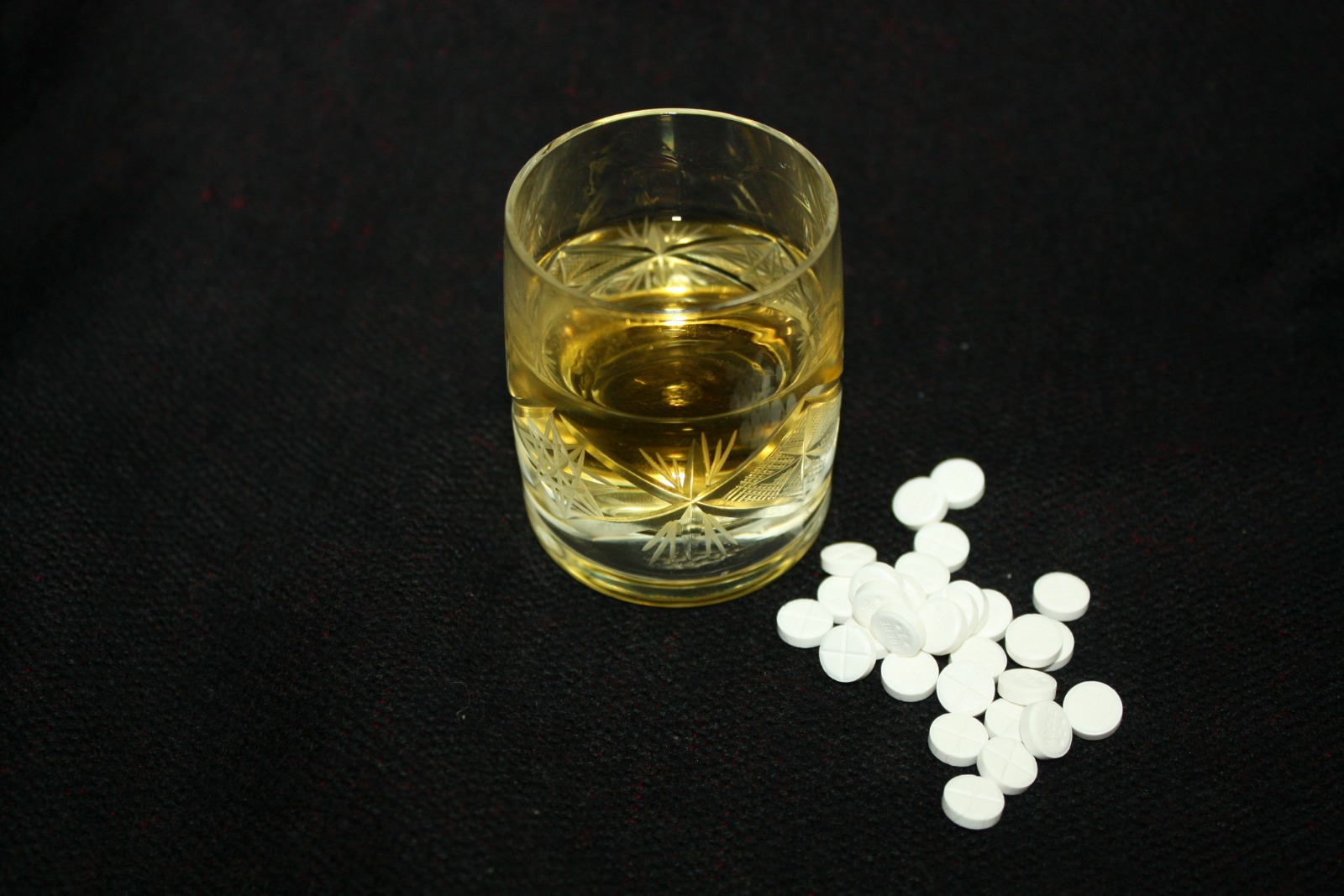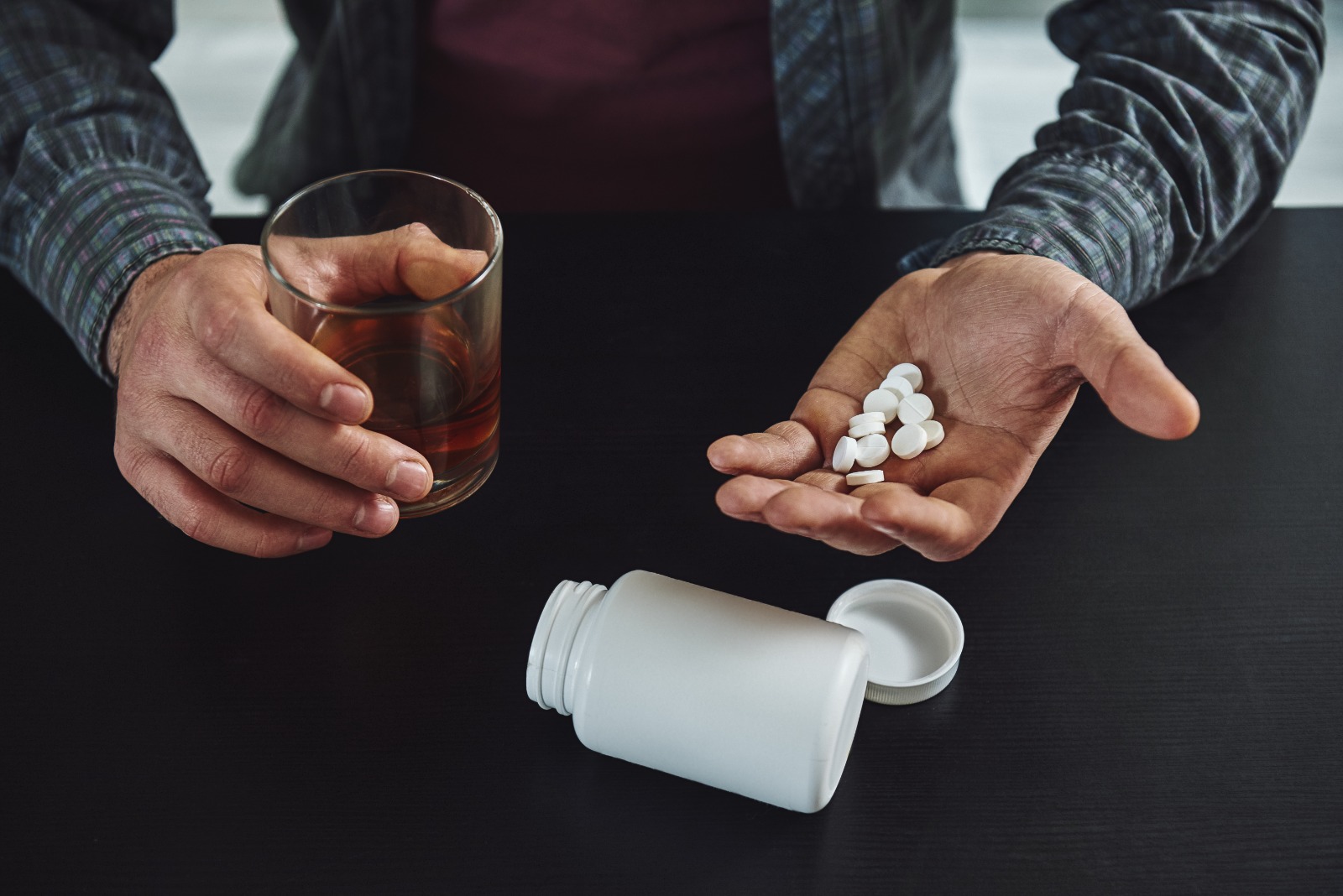
Table of Contents
- Why You Should Never Mix Tylenol® and Alcohol
- Risks Of Combining Tylenol® And Alcohol
- How Serious Is Liver Damage from Tylenol® and Alcohol?
- How Long Do You Need To Wait After Taking Tylenol® Before Drinking?
- How Long Do You Need To Wait After Having A Drink Before Taking Tylenol®?
- Why Taking Tylenol® and Alcohol Together May Be A Sign Of A More Serious Problem
- Struggling With Tylenol® and Alcohol Use? We Can Help.
- Sources:
Tylenol® and alcohol may be a more dangerous combination than you previously thought.
Most of us think of over-the-counter medications like Tylenol® as being harmless and risk-free, as long as we take them according to the package instructions. Similarly, we tend to approach legal substances, like alcohol, as being low-risk and something most people can tolerate without a serious problem most of the time.
The problem is that neither of these assumptions is accurate, especially when the two aforementioned substances are combined.
Here’s what you need to know about Tylenol® and alcohol, and the key reasons why you should never mix these two substances. We’ll also talk about how using both of these substances consistently can be a sign that there may be something more seriously wrong.
There’s a lot to cover, so let’s get started.
Why You Should Never Mix Tylenol® and Alcohol
When it comes to Tylenol® and alcohol, these drugs don’t have much in common other than both being legal, easy to get, and commonly accepted and used in our society.
The thing is, combining any two drugs, even legal drugs, can increase the risks and dangers from both drugs, even when they don’t have known interactions. This is because drugs fundamentally change the chemistry and function of your body; if they didn’t, they wouldn’t have the many different effects that we use them for.
If Tylenol®, a popular brand name for the drug acetaminophen, didn’t change what your nerves are doing to reduce pain signals, for example, it wouldn’t be a useful painkiller.
Alcohol wouldn’t cause inebriation, or any of the positive and negative side effects we associate with it if it weren’t changing parts of how our bodies and brains function.
Most of the time, controlled use and moderation are fine for both of these drugs. If that weren’t the case, then acetaminophen (generic Tylenol®) wouldn’t be the single most common drug ingredient [1] in the United States.
The big problem with combining these Tylenol® and alcohol is that they are both filtered out of your body by the liver, and both drugs are relatively hard on your liver as well.
When nearly a quarter of U.S. adults take Tylenol® every week,[2] and more than half of adults have had alcohol in the last month, that’s a serious consideration. Any time drugs are used as often as mentioned, it’s important to consider both the short-term and the long-term risks of use.
Generally, as long as you don’t take Tylenol® and alcohol simultaneously, or, ideally, on the same day, you should be alright. But, it’s best to space out when you take these drugs as much as possible, and critical not to take them at the same time if you don’t want to damage your liver.
Let’s talk about the specific risks from combining Tylenol® and alcohol.
Risks Of Combining Tylenol® And Alcohol
One of the most important considerations regarding the risk of combining Tylenol® and alcohol is that the combination gets more dangerous the more you take, and the more often you use either drug.
Since both of these drugs can seriously impact your liver and other parts of your body, the more continuously you use them, the more stressed your liver and other organs are likely to be already. Larger doses of either Tylenol® or alcohol, and especially both at the same time, can also increase the risk and severity of the side effects and risks.
Chronic alcohol use can also increase the risk of liver damage [3] from Tylenol® usage, even if the two drugs aren’t taken together; this is because your liver has less functionality for filtering out what needs to be than usual. People with three or more drinks daily may also be at risk of liver damage when they take Tylenol, even when they take only the recommended dose and don’t use Tylenol and alcohol together.
In addition to the risk of liver damage, both of these drugs can also irritate your stomach lining and may cause other digestive problems. If you notice nausea or heartburn from either of these drugs separately, you may have more severe versions of this irritation if you combine them. This is important to note because it makes it even more important to avoid taking both medications together if this is the case.
Handling Tylenol® and alcohol can be even more serious for anyone who already has pre-existing liver problems, either from previous drug use, autoimmune conditions, or chronic liver disease of any kind. People who have those conditions should be careful about both drinking and taking Tylenol®, and should especially avoid combining the drugs or taking them at the same time.
Remember, both Tylenol® and alcohol, like most drugs, persist in your body for quite a while after the main effects of the drugs wear off.
How Serious Is Liver Damage from Tylenol® and Alcohol?
Liver damage is one of those conditions that we talk about, but that a lot of people don’t really understand unless they are dealing with it themselves or have a close friend or family member dealing with the condition. But when it comes to Tylenol® and alcohol usage, it’s important to have a good understanding.
Liver damage is also a complex issue because your liver can regenerate, given a chance to, but significant enough damage can be life-threatening and may require a liver transplant to resolve.
Your liver is critical for digesting food properly, [4] as well as filtering drugs and toxins out of your body before they can cause harm to other bodily systems.
Depending on your liver’s condition when you combine Tylenol® and alcohol, the amount you take, and your overall health, you might not have much damage from occasionally using small amounts of the drug together. But more chronic use, or larger doses, can cause profound damage to even a healthy liver and lead to more serious problems with a liver that already has some damage or cirrhosis.
How Long Do You Need To Wait After Taking Tylenol® Before Drinking?
If you need to take Tylenol®, it’s best to wait at least 24 hours from the most recent dose of Tylenol® before having a drink. Waiting longer is generally better.
How Long Do You Need To Wait After Having A Drink Before Taking Tylenol®?
If you’ve been drinking and wake up with hangover you might want to reach for a Tylenol®, but that’s not a good idea. You should generally wait at least 24 hours after your last drink wears off before taking Tylenol® again. Instead, consider using other techniques to manage your hangover, and try to drink in moderation next time, so you don’t want a painkiller the next day. This way, Tylenol® and alcohol consumption can be spaced out more healthfully.
Why Taking Tylenol® and Alcohol Together May Be A Sign Of A More Serious Problem
One of the reasons it’s not a good idea to take Tylenol® ®and Alcohol together actually has nothing to do with the negative health effects. Instead, it’s because needing both of these medications simultaneously is a sign that something is possibly already wrong. If Tylenol® isn’t strong enough to manage your pain, for instance, you should probably go to a doctor instead of reaching for alcohol to cover or distract from the additional pain.
Alternatively, if you’re drinking alcohol and start hurting bad enough that you want to take Tylenol® simultaneously, chances are you’ve either had too much to drink, are having an adverse reaction to something, or are already dehydrated and need water, not a painkiller. Tylenol and alcohol were not designed to take care of problems together effectively.
And if you’re drinking without considering that you’ve also taken Tylenol® or another substance that day, at least long enough to look up and see if the combination is dangerous, that may be a sign that you are dealing with alcohol addiction, otherwise known as alcohol use disorder or alcoholism.
Remember, you don’t actually have to drink all the time to be an alcoholic. Alcoholism is more about your ability to control and moderate your drinking behavior and to control yourself (as much as this is possible) while drinking. Lots of alcoholics think that they aren’t actually dealing with an alcohol addiction simply because they are able to be sober at work, or don’t drink every day. Yet their binges or drinking behavior is more out of control, and when they drink, they often drink to excess.
Regardless of why you are combining these drugs, there’s a good chance something is wrong. Depending on your symptoms, you might want to talk with a doctor about what’s going on and see if there is an underlying condition that needs treatment.
And, if you are dealing with alcohol addiction, remember that you aren’t alone, and there is help out there.
Struggling With Tylenol® and Alcohol Use? We Can Help.
Alcohol use disorder can be hard to spot, especially in yourself. But if you suspect that you might be dealing with alcohol addiction, chances are that you either already are, or that you are starting to head in that direction.
There are a lot of resources out there for alcohol use disorder, but not all of them are backed by science or proven to be effective.
If you want proven treatment and care professionals with the expertise, compassion, and therapeutic knowledge to help you overcome alcoholism, we can help.
Contact Ocean Recovery to learn more about our treatment programs, the admissions process, and to get answers to any other questions you have about addiction treatment.
There is a future where you aren’t controlled by addiction out there. You need to decide you want to get there.
Sources:
- Consumer Healthcare Products Association. (n.d.). Acetaminophen. Retrieved from https://www.chpa.org/our-issues/otc-medicines/acetaminophen on 2023, February 12
- GoodRx. (n.d.). Is it safe to take tylenol® after drinking alcohol? Retrieved from https://www.goodrx.com/acetaminophen/tylenol-and-alcohol on 2023, February 12
- Ghosh A, Berger I, Remien CH, Mubayi A. National Library of Medicine. (2021, June 21). The role of alcohol consumption on acetaminophen induced liver injury: Implications from a mathematical model. Retrieved from https://pubmed.ncbi.nlm.nih.gov/33333080/ on 2023, February 13
- Mayo Clinic. (n.d.). Liver problems – Symptoms and causes. Retrieved from https://www.mayoclinic.org/diseases-conditions/liver-problems/symptoms-causes/syc-20374502 on 2023, February 13
OCEAN RECOVERY EDITORIAL GUIDELINES
The internet contains a vast amount of misinformation, but when it comes to your health only peer reviewed, research centered data matters. At Ocean Recovery, all content published throughout our website has been rigorously medically reviewed by a doctorate level clinician, and cross checked for medical accuracy. Our editorial process helps our readers trust that the information they are consuming is factual and based upon scientific data. Your health is our top priority, find out more about how we safeguard the integrity of information on our website. Read More About Our Process






